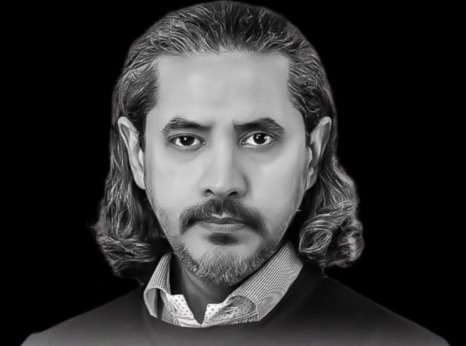United Arab Emirates: Egyptian-Turkish Poet Forcibly Disappeared

Abdul Rahman Al-Qaradawi is an Egyptian-Turkish poet living and working in Türkiye. He is the son of late prominent Egyptian Islamic scholar Yusuf Al-Qaradawi. His sister, Ola Al-Qaradawi, was arrested in Egypt in June 2017 and has spent four years arbitrarily detained on bogus terrorism related charges. The Egyptian authorities sentenced him Abdul Rahman Al-Qaradawi in his absence in 2017 to five years in prison on charges of spreading false news among others, in a politically motivated case. On 26 January 2025, the Egyptian Parliament discussed and approved a new treaty to transfer convicted prisoners between Egypt and the UAE. If extradited to Egypt, Abdul Rahman Al-Qaradawi would be at real risk of enforced disappearance, torture and other ill-treatment and unfair trial leading to prolonged unjust imprisonment.
Abdul Rahman Al-Qaradawi’s arbitrary detention came after he made comments critical of the Emirati, Saudi Arabian and Egyptian authorities. Amnesty International reviewed the content of his posts and found that the arrest and extradition request by the UAE is based on speech that is protected under the right to freedom of expression. Under international law and standards, freedom of expression applies to all kind of ideas, including deeply offensive ones, and speech can only legitimately be restricted under international law if it violates the rights of others, or, advocates hatred and incites discrimination or violence. Forcibly extraditing him to a country where he is likely to face persecution is a flagrant breach of the principle of non-refoulement, which under international human rights law guarantees that no one is to be returned to a country where he or she would face torture, cruel, inhuman or degrading treatment or punishment and other irreparable harm. On 8 January 2025, several UN Special Rapporteurs issued a press release urging the Lebanese authorities not to extradite him “to a country where there are substantial grounds to believe that he would be in danger of torture, enforced disappearance or other grave human rights violations”.
Since 2011, scores of people in the UAE have been detained in relation to the peaceful exercise of their rights to freedom of expression and association. In 2012, after a grossly unfair mass trial of 94 defendants, known as the UAE94, 69 people were convicted and sentenced to between seven and 15-year prison terms, scores of them for their demands for reform and democracy. Under UAE law at the time, the judgement was final and not subject to appeal, in violation of international law. Of the 69 men sentenced, five received a seven-year prison sentence, 56 a 10-year prison sentence and eight were sentenced to 15 years in their absence. Fifty-nine of those imprisoned in the case remain arbitrarily detained after completing their sentences.
On 17 May 2023, Turkish-Emirati citizen Khalaf al-Rumaithi, was forcibly deported to the UAE from Jordan. He was one of the UAE 94 sentenced to 15 years in prison in his absence and had been living exile in Türkiye for the past decade, but had flown to Jordan on 7 May 2023 in search of an Arabic school for his children. The state-owned Emirates News Agency, announcing his deportation from Jordan and arrest in the UAE, said that he will face a retrial on the charge of affiliation with an organization “that aims to oppose the foundational principles of the UAE government”. Khalaf al-Rumaithi was also a defendant in the another mass trial involving 84 defendants, including at least 26 prisoners of conscience. On 10 July 2024, 43 of the defendants were given life sentences, five were given 15-year sentences, and another five were given 10-year sentences, following proceedings that violated fair trial rights.
The UAE has yet to ratify key human rights treaties, including the International Covenant on Civil and Political Rights (ICCPR) and the International Covenant on Economic, Social and Cultural Rights (ICESCR). Nonetheless many of the provisions of the two covenants are drawn from the Universal Declaration of Human Rights (UDHR), which have over time become part of customary international law and are therefore binding on all states.